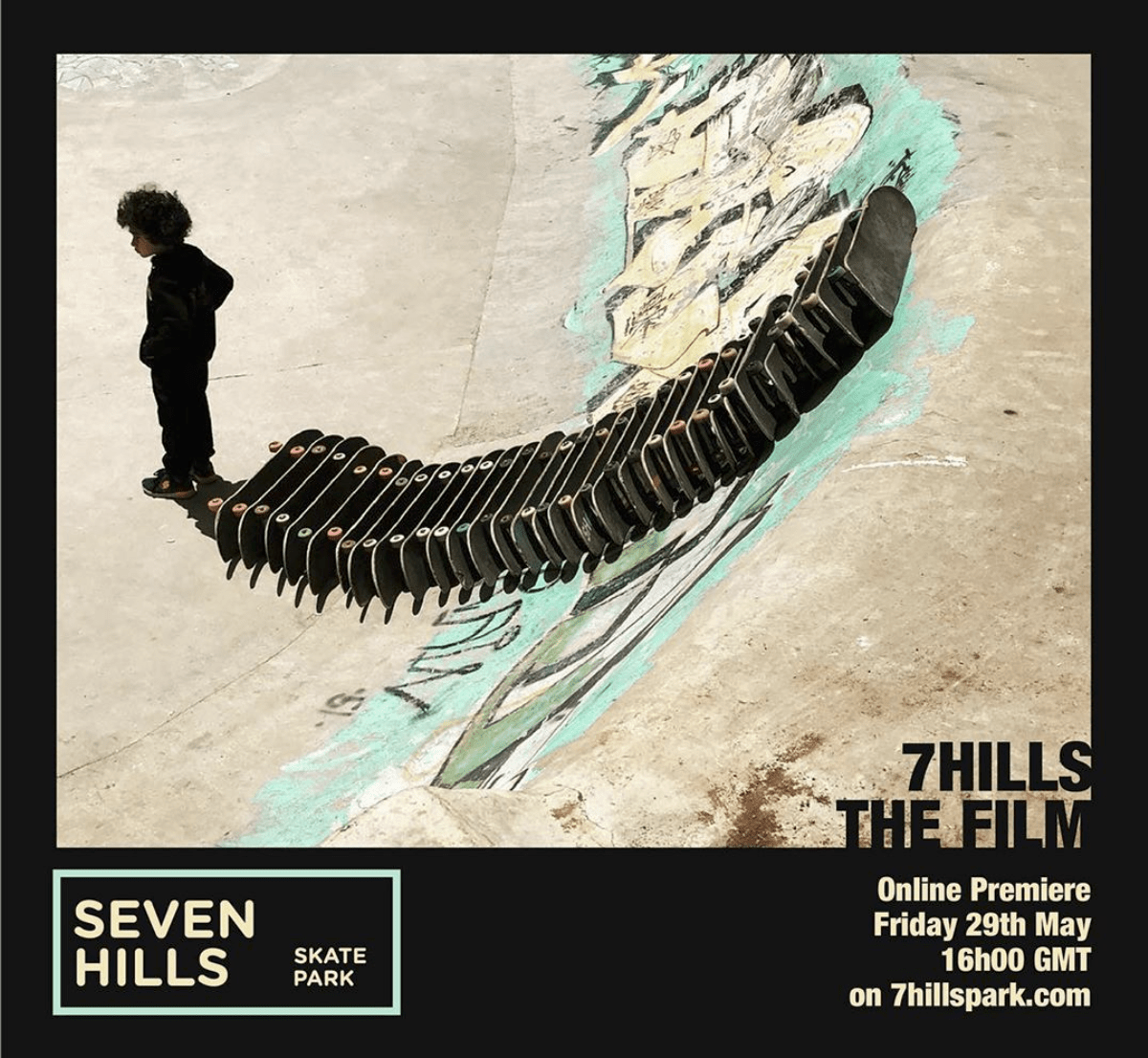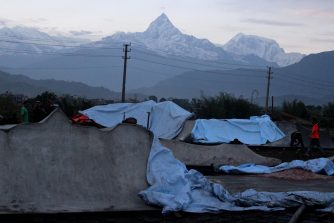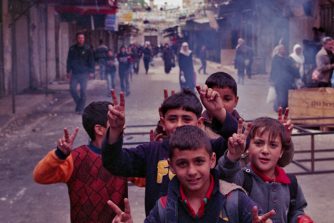In anticipation of the 7Hills documentary film premiere we thought it would be an ideal time to upload our 7Hills feature from Issue 9 of the mag. The article was all put together by Chris Mann during his stint of voluntary work out there in Amman, Jordan. The 7Hills film details the philosophy behind 7Hills Skatepark and it’s skate program as told by the people behind the organisation and through the stories of the youth who have made the park a home. You can read the article below and watch the video premiere here for 24 hours only from 7pm Amman time (EEST), 5pm UK time (BST) and 9am (PST).
Interview + Photography by: Chris Mann
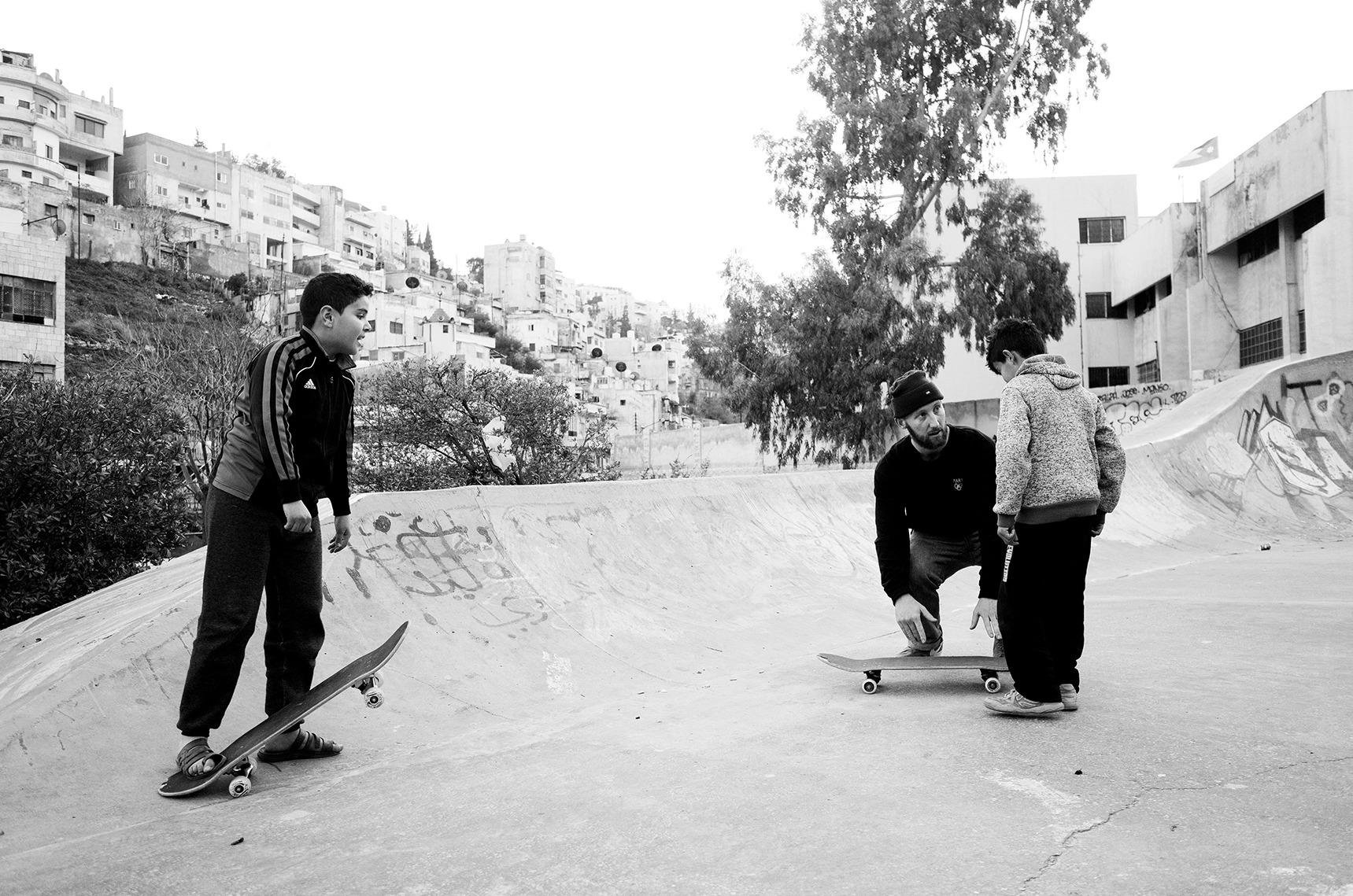
Photo by: Chris Mann
Based in Amman, Jordan, 7Hills is a non-profit organisation working to unite local and refugee youth through skateboarding philosophy. For the past 50 years, Jordan has been regarded as a safe haven for refugees from neighbouring countries. Today Jordan plays host to 57 nationalities and holds one of the top 10 largest refugee populations in the world. Despite over 70% of the Jordanian capital’s inhabitants being younger than 30, there is an immense lack of public spaces and free recreational outlets available for the city’s youth. In 2014, in a response to the scarcity of safe public spaces in Amman, the 7Hills team partnered with Make Life Skate Life to establish a community building project. After raising $20,000 in an online crowdfunding campaign, a group of international and local volunteers transformed an abandoned 650 m² area of downtown Amman into Jordan’s first skatepark. In 2016, 7Hills launched today’s skate programme for the local and refugee youth. Every week, the skatepark sees over 150 participants consisting of Jordanian locals as well as refugees from Syria, Sudan, Somalia, Iraq, Palestine and Yemen. With skateboarding as a tool, the kids are uniting to break down social, political and cultural barriers. We sat down with 7Hills founder Mohamad Zakaria and Programme director Kas Wauters in Amman to talk more about skateboarding in Jordan, the 7Hills project and their plans for the future.
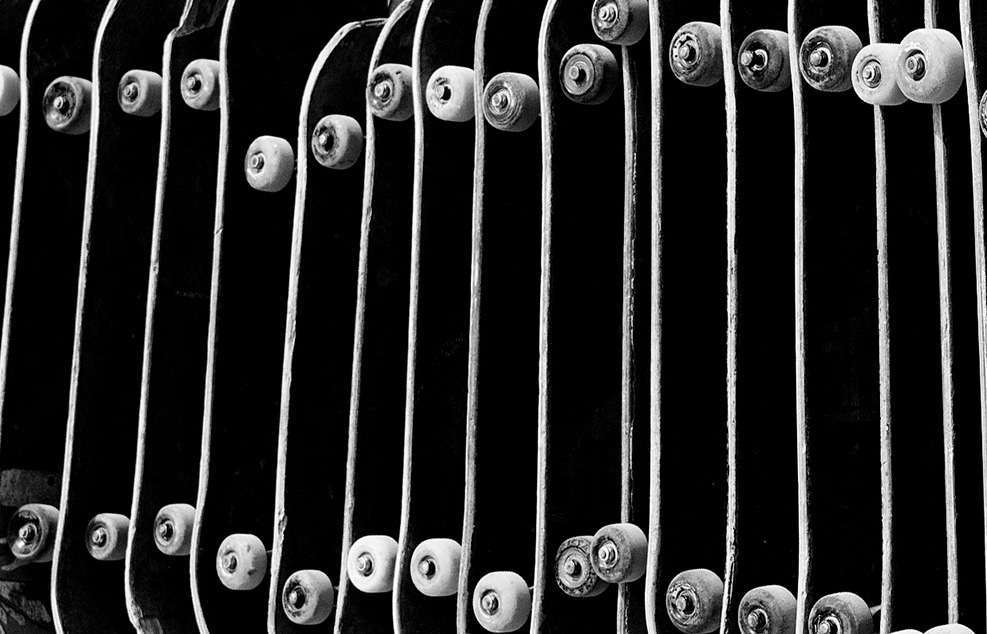
Photo by: Chris Mann
For those who aren’t familiar with Jordan’s geopolitical positioning, let’s kick off with explaining how the country is situated in relation to surrounding middle eastern nations and how this affects Jordan?
(M) The geopolitical situation is very complex. Put simply, Jordan is surrounded by wars and conflict zones. We have Palestine and Israel to the west, Syria to the north, Iraq to the east and Saudi Arabia to the south. With its current borders, the country was established in 1928. I think it was of strategic interest for Britain back in the day. The country is landlocked with minimal natural resources, Jordan is actually one of the poorest countries in the world when it comes to drinking water. Today It seems as if the whole country is becoming a buffer zone for people migrating from conflicts.
As a result, the present population of the country is very diverse. You have original Jordanians and the Circassians who travelled here through the pilgrim line to Mecca and ended up settling in Jordan. Then you have the Palestinians who migrated to Jordan after 1948. More recently, as a result of neighbouring situations, you have Syrians and Iraqis, as well as large Sudanese, Yemeni, Somali and Libyan populations. With this influx of migrants and refugees you also have non-government organisations, charity workers and expats making up a fraction of Jordan’s population too.
How does this neighbouring activity affect Amman specifically?
(M) Amman holds most of the country’s population and takes most of the refugees that surrounding countries produce. There’s a lot of pressure on the city for development, with other cities being somewhat neglected by the government. Amman is seeing a lot of migration happening very rapidly and so the city is very reactive instead of planning ahead. The city lacks a lot of infrastructure including public spaces and public transportation, it’s very challenging.
On the other hand, the social fabric of the city is changing rapidly. We have these different groups of people from everywhere bringing their own culture, enriching the city in a way. The city would rather provide more fundamental infrastructure such as water for the rising population as appose to public space and this is where 7Hills comes in. Small changes make big differences in Amman and we’re taking a community approach to fix the problem with public space.
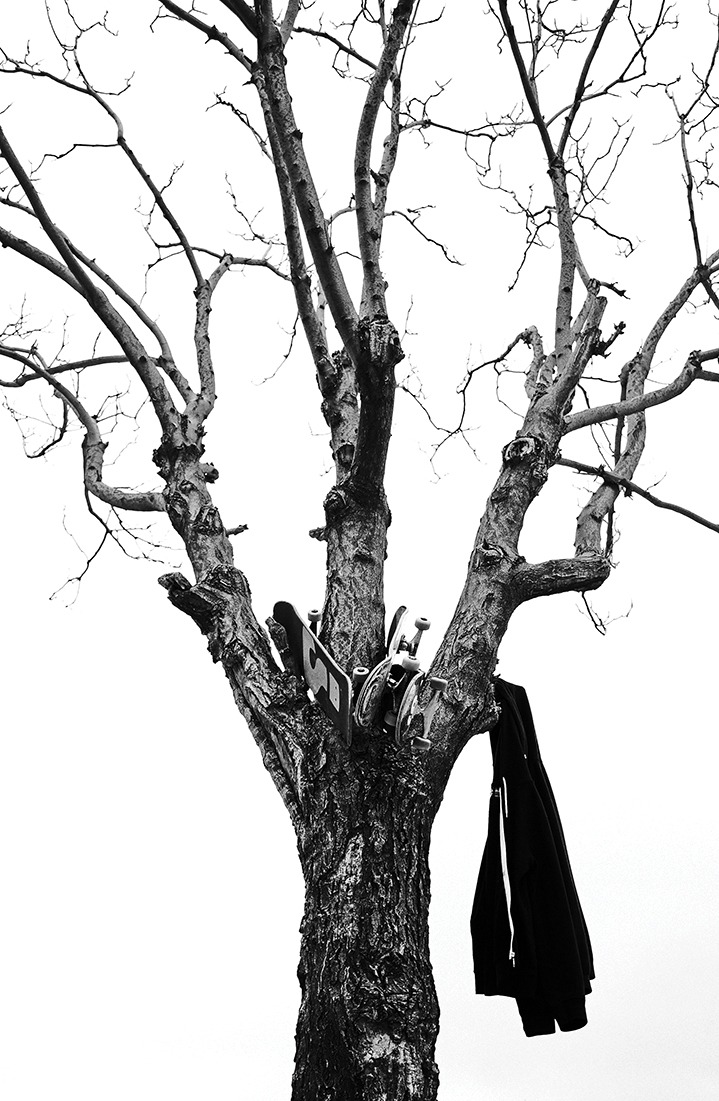
Photo by: Chris Mann
The 7Hills park was built in 2014 with the help of Make Life Skate Life. However, the programme you run today didn’t come about until 2016. What was happening in those first 2 years and how did the current programme come about?
Between 2014 and 2016 there was one class that was running but it wasn’t really sustainable. The project was led by Make Life Skate Life and they tried to implement a programme. Kas (Wauters) joined in 2016 and we started a legitimate skate programme which is still running today.
(K) My initial start was through Make Life Skate Life. I was reaching out to different organisations that worked with skateboarding and Make Life Skate Life were like yeah, maybe there’s a need for a programme for 7Hills in Amman and that’s how it started.
You hear about so many great projects with skateparks being built in cities like Amman. However, maintaining and sustaining the scene and longevity of these parks is a bigger project altogether, right?
(K) I think most charities responsible for building parks always try and bring a ton of boards and start a programme with the locals, however these charities are still completely voluntary organisations and often don’t have the capacity to really work on it as much as they’d like to. Sometimes it works in the hands of the local scenes, for example in Myanmar the local scene is managing the programme and the park works. In Iraq, they had a team who recently built a park with some of the guys staying on to start a programme after the building completion, it’s super important. We’re the only source of skateboards in the country and we want to give everyone the chance to skate regardless of their nationality and socioeconomic background. All the skate classes we run are free and anyone can use our boards. People that can afford it can donate to 7Hills in return for a board, which also helps keep our free classes running. For the kids that can’t afford to buy boards, we run a local youth leadership program. The idea is to basically teach these youth leaders to take care of the skatepark as well as teaching new kids how to skate. In return they earn boards, depending on the number of classes they help out with.
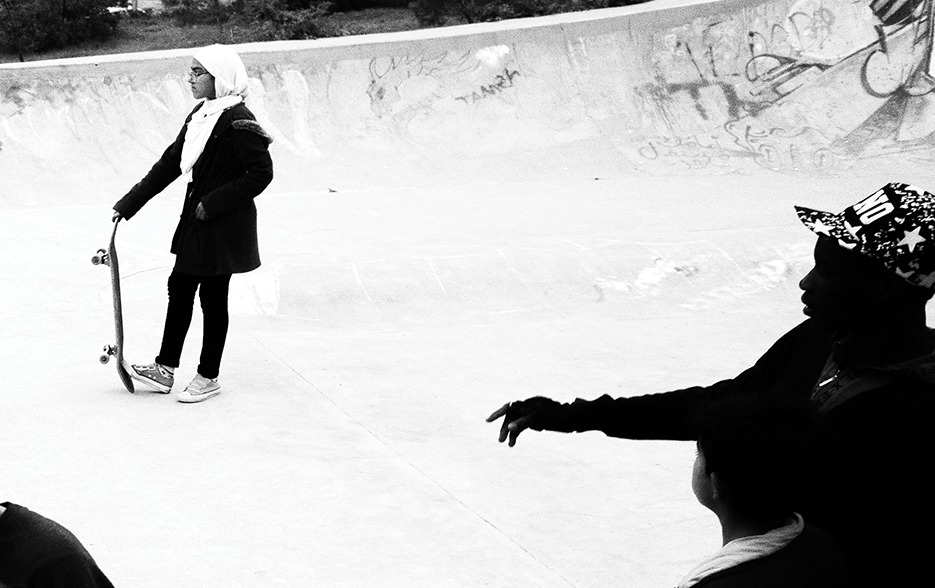
Photo by: Chris Mann
Given that these voluntary organisations often don’t have the capacity to sustain a programme, how does 7Hills survive financially? Who’s on board and how do you keep the programme alive?
(K) Mostly through outreaching and crowdfunding for private donations, with most of these coming from individuals across the global skateboarding community. We also received a seed grant from the EED (European Endowment for Democracy).
(M) Because Jordan as a country is very dependent on foreign donations, there are many NGO’s and charities working here and 7Hills falls into that bracket. The whole idea of the skatepark is that it’s a community orientated project. During the build, professional skatepark builders worked with the locals to teach them the craftsmanship of concrete skatepark construction. The money today is raised by the community and it’s run by the community, so we want to keep this vibe going. Our plan is to rely less and less on foreign donations or donations from big non-government organisations through more crowdfunding campaigns and working with local private companies. Bigger donors are also more likely to dictate how we spend the money and we want to keep the project open to experimentation within the community.
The skate charity movement is certainly not one size fits all. How does the 7Hills programme differentiate from similar charities such as neighbouring SkatePal?
(M) At the core of it I think it’s kind of the same but because you can’t implement the same solution to all the problems you have, each place has it’s own set of rules and values you have to work with. I see the lack of public space in Amman not only as a challenge but also an opportunity for us. Because the park is situated in the middle of downtown it’s easily accessible from all parts of the city. The space we’re operating in is huge, it’s a 4000 square metre park with only 650 square metres currently being used for the skatepark. We see the park attract not only skateboarders but also other people who are interested in the public space. This in turn attracts even more people, resulting in other activities going on around the skatepark. It’s really important for us to showcase the value of this place to the city and show the municipal government why it’s so meaningful, hopefully pushing them to do more.
(K) With SkatePal for example, it’s so hard for people to move around in the area (due to the occupation of the land in the West Bank), that it makes the parks accessible only to the people within the villages. Because 7Hills is operating in the middle of a big city we want to make it accessible for everyone we can, including those who don’t have the money to travel to the park. The skatepark’s regulars are mostly urban refugees and locals from lower socioeconomic areas of the city. Our biggest expense is also organising buses to come to the park several times a week. These buses pick up kids from communities situated in east-Amman, on the outskirts of the city as well as the Gaza-camp in Jerash and Marka.
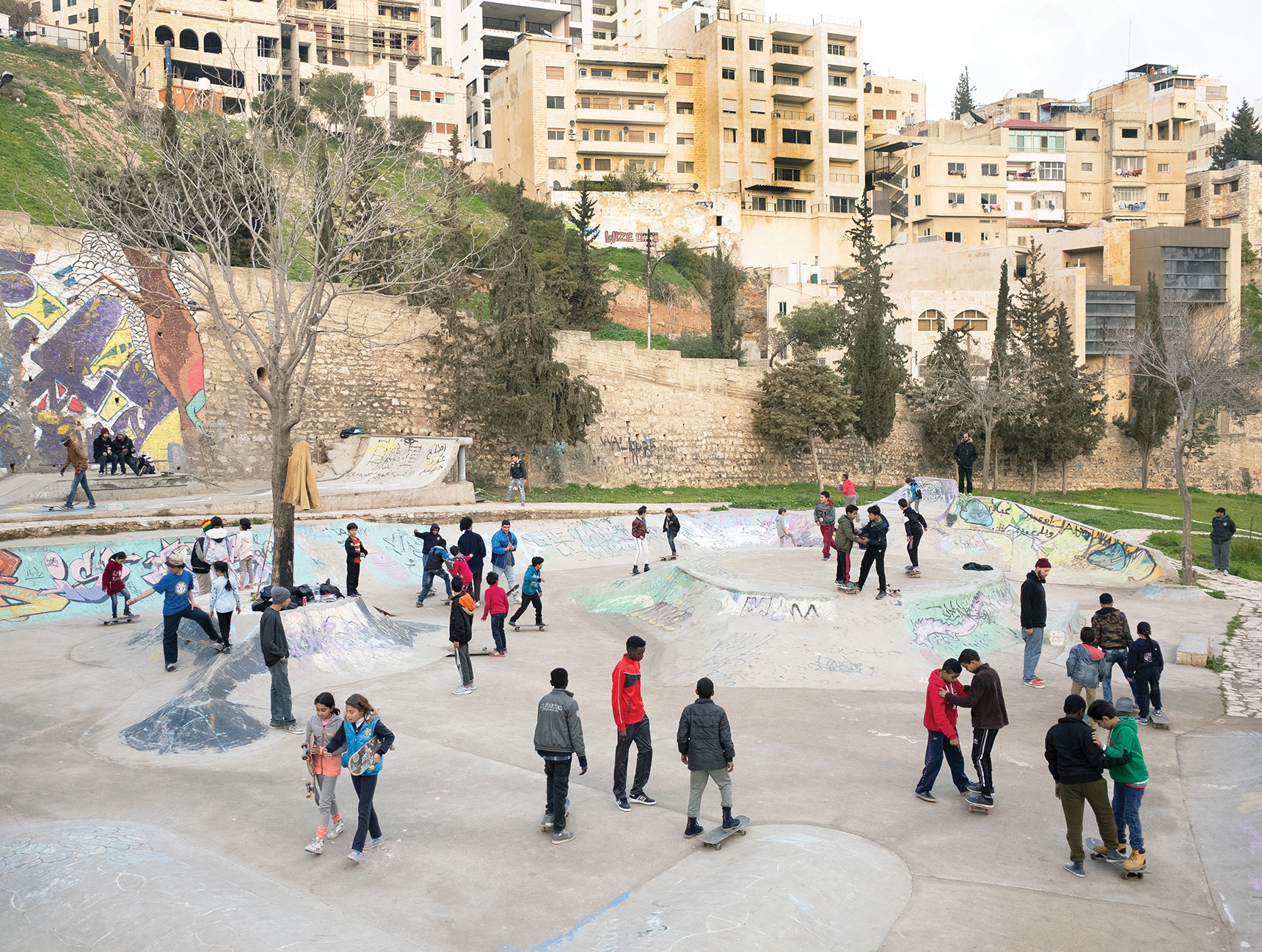
Photo by: Chris Mann
Many skate charities and internationally renowned NGO’s rely solely on volunteers to teach and sustain their programmes. Can you explain how this is something you’re steering away from?
(K) Our approach is for sure focused more on empowering and engaging the local kids and training them to teach the skate classes themselves. It’s cool for the kids to meet the international volunteers and for them to also teach, but volunteers can come and go at different rates. The current programme would die without volunteers but putting the programme in the hands of the kids makes them able to continue growing. Incentivising the kids by earning skateboards as I previously mentioned definitely encourages this.
We’re also trying to create local role models in the park. For example, Sudanese people are unfortunately facing a lot of racism in Amman, however our Sudanese youth leaders are respected role models for the other kids in the park. The same happens with girls that are joining our youth leader program. It’s really important for us to show that a Sudanese girl wearing a Hijab can also be a skateboarding teacher.
(M) If the programme isn’t in the hands of the locals it also increases it’s dependency on external support. Currently the park is regenerating itself. The skateboarding community built the park and now the park is sustaining and growing the local skateboarding community, hopefully paving the way for us to build more parks in the future.
With that said, how important are the roles of volunteers and peers to influence the kids?
(K) We rely on the volunteers as well as the international skateboarding community to see the project, spread the word and even to bring boards and product to Amman. It’s super inspiring for the kids to skate and build a relationship with volunteers from all over the world, each from different countries with different scenes and styles.
(M) We’re really trying to use it as a tool for bringing people together. Any skater would say that skateboarding has helped shape themselves and their personalities. Kas is from Belgium and he’s living in Jordan because of skateboarding, the volunteers that visit are here because of skateboarding. It’s like an extended family in a way and it’s nice to show the locals that they’re a part of this network. It’s also important to show the kids that skateboarding opens up many doors into other creative fields such as photography, filmmaking etc. It’s eye opening for them to see what the volunteers are doing off the board and get inspiration for other hobbies. The opportunity to build new networks and express themselves in new ways is super important as they develop and discover their own identities.
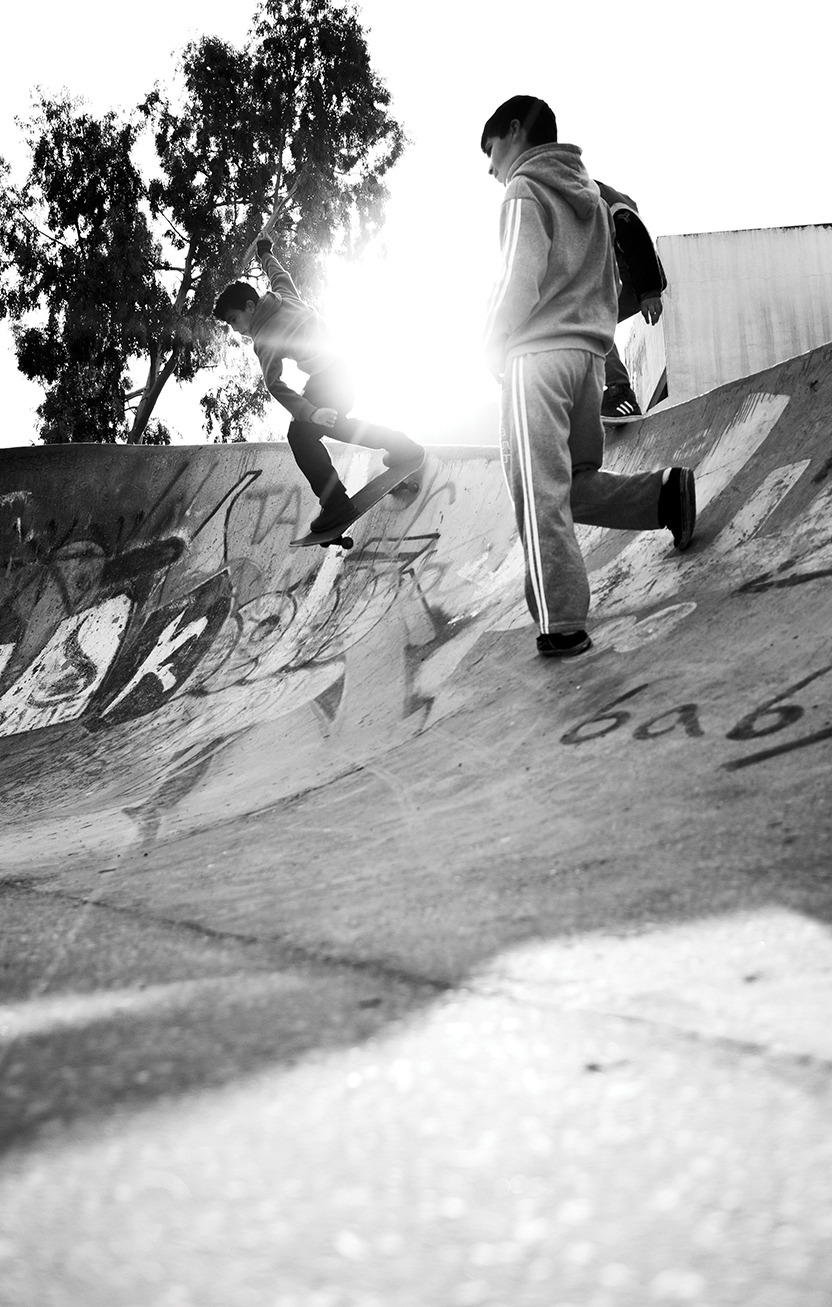
Photo by: Chris Mann
In a part of the world often stigmatized with gender inequality, can you tell us more about the heavily attended girls only skate classes you hold and how these came about?
(M) The segregation between boys and girls is super connected to the issue of public space. The only place where boys and girls can actually interact is in public spaces. The lack of such spaces in Amman is obstructing this and the girls become almost alien to the boys as a result, it’s something I’ve experienced first-hand.
We work with a local NGO to incorporate skateboarding into the activity programme they run for local and refugee girls. Skateboarding is the only activity from this programme where both girls and boys mix, even at school the two sexes don’t really interact. I think having the park in an accessible public space helps break down these gender barriers.
(K) It’s for sure a new thing for the girls to interact with boys during activities. It’s super important for us to create a space where the locals can learn how to interact with each other, regardless of gender. Both the girls and the boys are now super comfortable with each other. But even some of the youth leaders who’re now teaching their own classes found it quite strange to hold hands with girls at the beginning. We had to educate the boys to share. For example, if the girls are skating, we’d make sure the boys know they have to wait to use a board. It’s essential for us to teach the boys that the girls have just as much right to use the park as them. As a result, the girls are using all of the space the park has to offer.
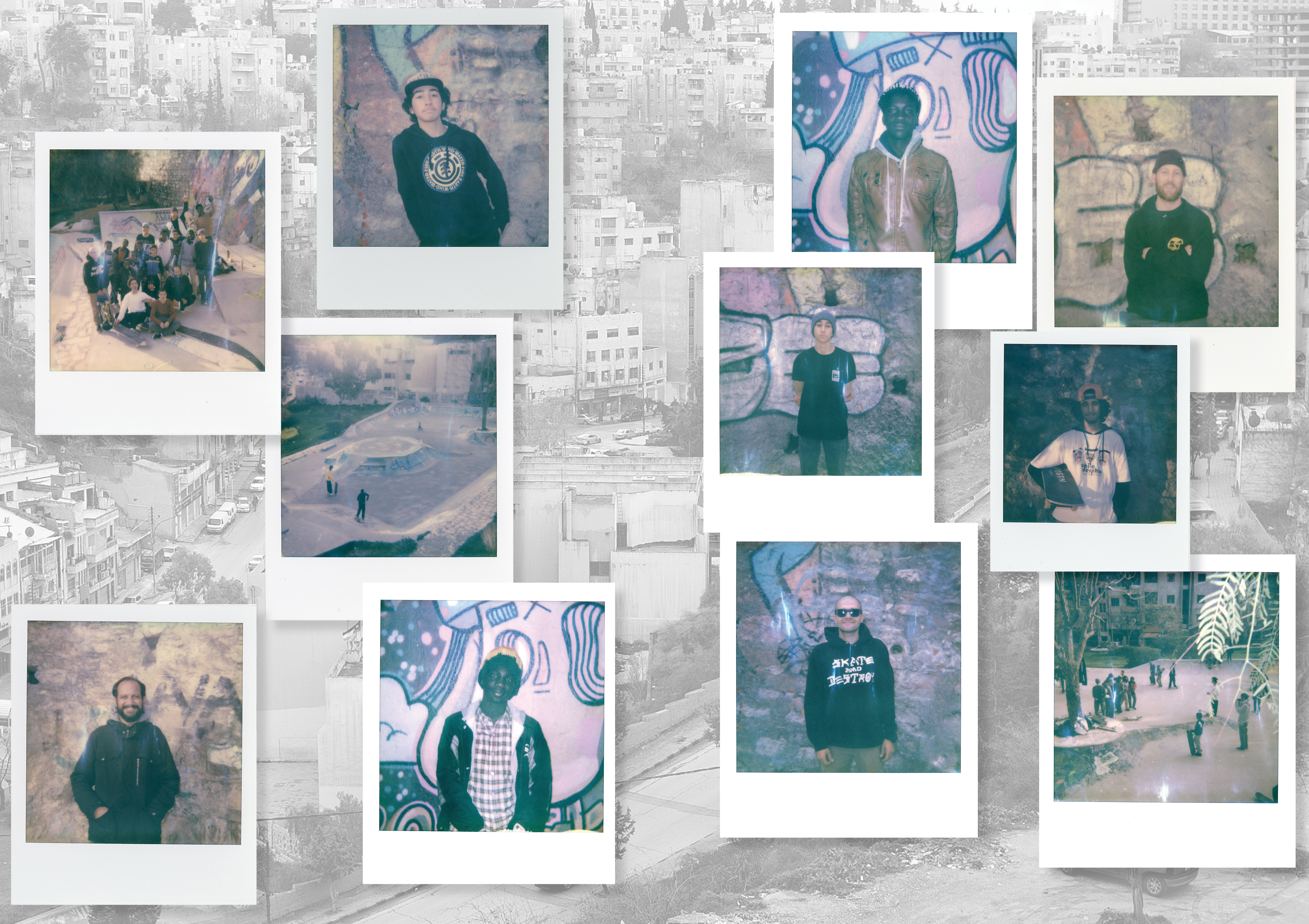
Photo by: Chris Mann
With the park now an established point of reference, the locals are also taking to the Jordanian streets. Given you can’t manage street skating in the way you can the skatepark, how do you get involved and nurture skating outside of the park?
(K) This is one of my favourite aspects of the project. We organise and pay for transportation, encouraging the kids from the park to join us after classes and skate different areas of the city. At the same time the locals are sort of discovering it for themselves, it’s really cool to see. I recently went back to Belgium for a couple of months and when I came back the locals had taken it into their own hands and were street skating every day!
(M) Street skating is redefining the locals’ relationship with the city, they’re seeing a challenge and opportunity in everyday objects and viewing the city in a completely different way. All skateboarders have a special relationship with their cities and because of this, they know a different city to everyone else.
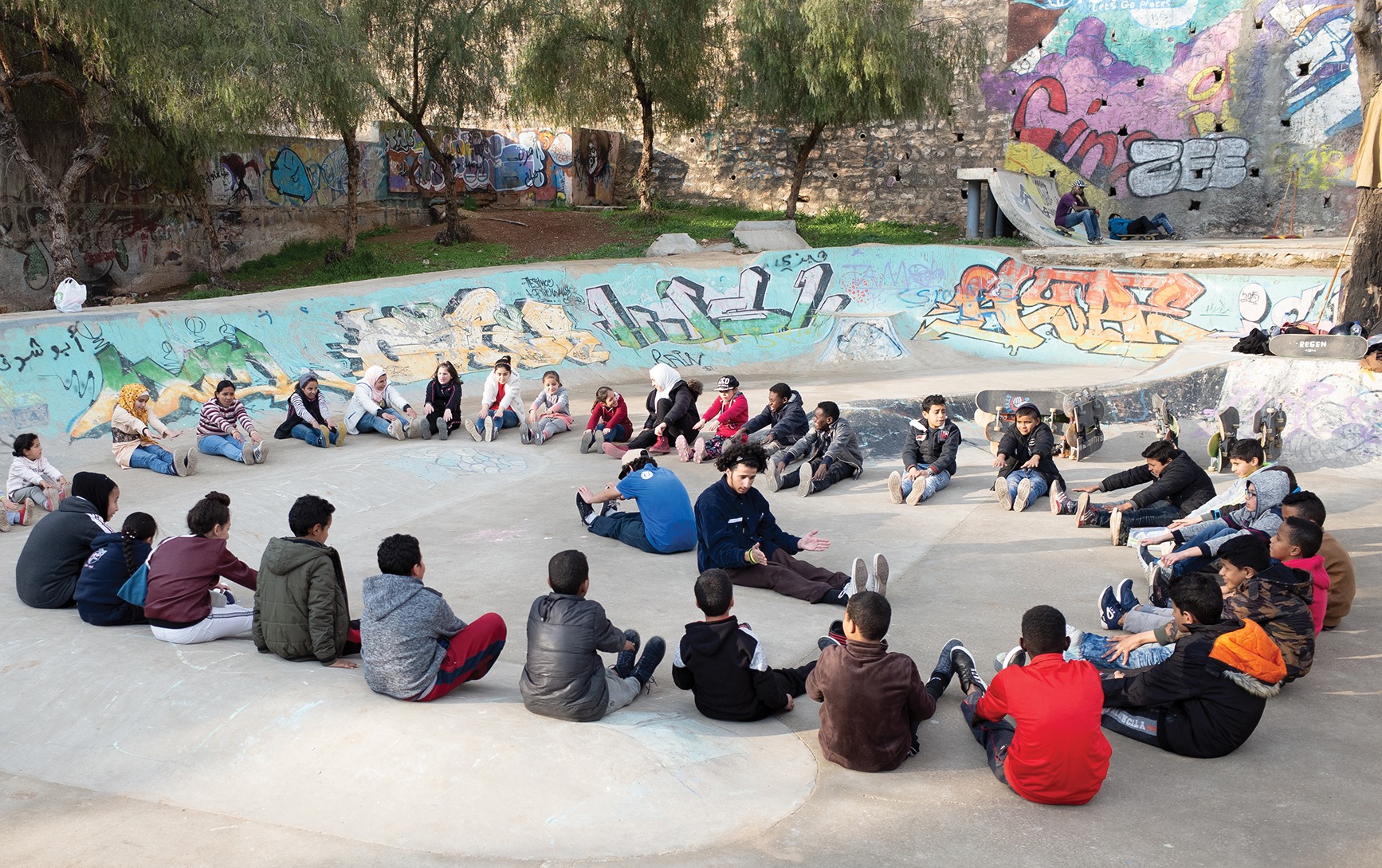
Photo by: Chris Mann
Currently doing the rounds across the Internet is a photo of Tony Hawk with his hands on a framed 7Hills photo! How did the birdman catch wind of the project?
(M) There’s a film currently being made about 7Hills (@7hillsthefilm) and the director Jesse Locke has connections with Tony Hawk, I think he knows his wife or something. He sat down and interviewed Tony Hawk about skateboarding, skateparks and projects like 7Hills. After the chat, they ended up getting a photo of Tony Hawk holding a framed photo of one of the local girls from the park. It did the rounds on the Internet and everyone here was super stoked!
Projects like 7Hills grab a lot of people’s attention, partly because of their geopolitical context. Particularly they attract other skateboarders who pursue creative hobbies such as filmmaking and photography. How do the locals/kids respond to this kind of ‘media attention’?
(K) It’s important for us to involve the locals in everything that’s happening in and around both the park and the programme. We push filmmakers and other creatives to involve the local guys in the production process of their projects. With the 7Hills film I just referred to, one of the local skaters was the translator, another local was helping shoot B-roll footage and they’re both being credited in the film as a result. We’re encouraging the locals to help out, gain experience and even get them some paid work out of these opportunities.
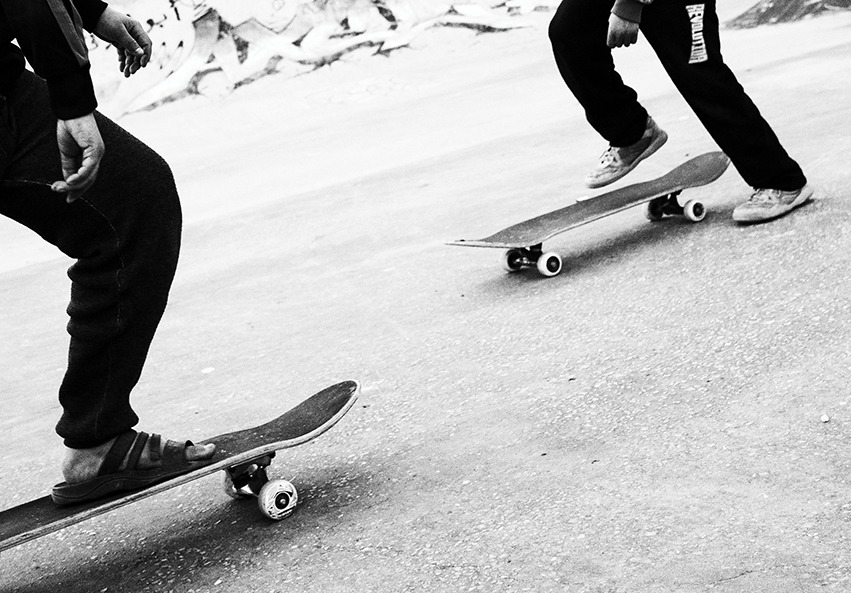
Photo by: Chris Mann
Skateboarding in Amman seems to be well received by many different cultures as well as the parents and the community. What do you think makes skateboarding so accepted here?
(K) The parents of many locals don’t really know what skateboarding is, it’s a new thing to many people and viewed more like play as opposed to a conventional and competitive sport. If we were pushing football I don’t think the parents would be as accepting, cooperative and supportive as they currently are. For the families, the park is a place to relax, socialise and have some time off from the kids whilst they skate. It’s a small aspect but it’s super important.
The skatepark is also so welcoming in contrast to the other more discriminating spaces in the city. The Sudanese refugees in particular were afraid to go to other public spaces because of racist comments etc. At the skatepark, the kids are identifying with each other not as ‘refugees’ or ‘locals’ but simply as fellow skateboarders.
(M) At the end of the day I also think it’s down to the fact that skateboarding is just fun. Failing is a huge part of skateboarding, you fall, you accept it and you learn from it. This doesn’t change if you’re a boy or a girl, black or white. Everyone experiences the same thing. In organised sports failing isn’t as welcomed and it’s more like ‘oh, he’s a better player…’. Skateboarding is a humbling experience really.
With the skateboarding scene continuously growing and community becoming ever more involved with the project, what does the future look like for 7Hills and what projects do you have coming up?
(M) Our future focus is certainly on public spaces and using skateboarding as a tool to bring the community together. The big vision for us is to get involved in renovating more public spaces in Amman like we have at the skatepark. We’re constantly experimenting and learning as many lessons as we can, to implement skateboarding into other spaces and in other ways. We believe simple changes such as incorporating skateable architecture into existing public spaces will have ripple effect repercussions for both skateboarding and the general public. We’re also looking to develop the existing space around the park to further cater to the families of kids as well as encouraging other community activities and sports.
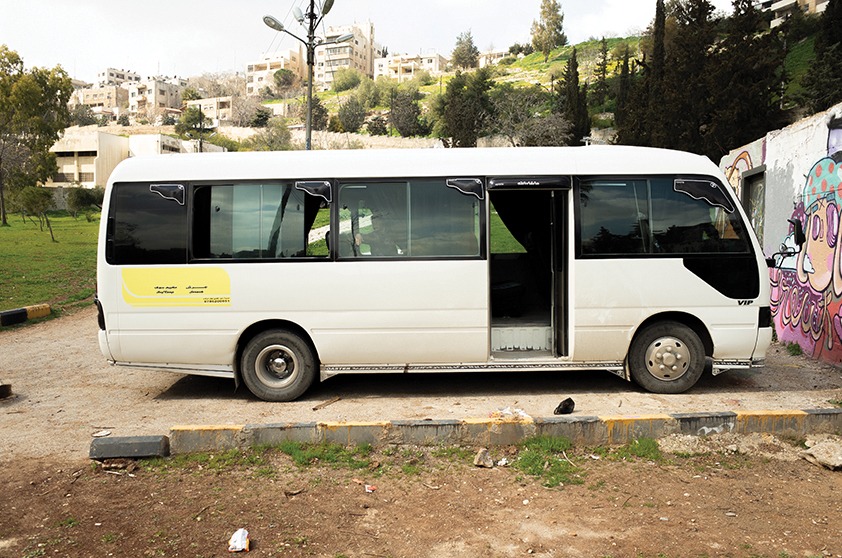
Photo by: Chris Mann
Thanks to all the local kids, the international skateboarding community and all the volunteers.
We’re always looking for new volunteers! It’s a cool way to travel and get involved with our upcoming projects. Drop us an email: volunteer@7hillspark.com
Follow 7Hills on Instagram: @7hillspark
7Hills Video Premiere is available to watch for 24 hours only from 7pm Amman time (EEST), 5pm UK time (BST) and 9am (PST). Click here or the image above to be directed to the premiere!
“7Hills The film premiere – tune in with us Friday night on 7Hillspark.com at 7pm Amman time! Gather round and spread the word, y’all! ?️? 7Hills the film is a documentary about the philosophy behind 7Hills Skatepark and its skate program as told by the people behind the organization and through the stories of the youth who have made the park a home.”


